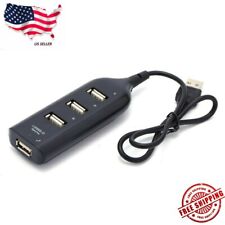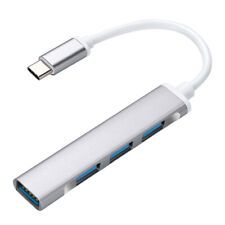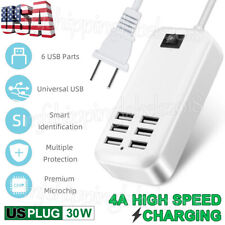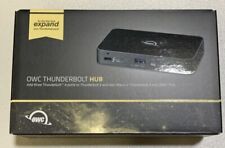Internet Safety Tips for Kids
Did you know that your safety and the safety of your family, community and country depends on each individual internet user? That’s you and me. Each person is responsible for their share of the
chores and keeping themselves and their family safe. Lets say it’s your turn to take the garbage out on Monday but you don’t. If that garbage stays there till next Monday, it’ll get a bit stinky besides attracting bugs and sickness. The internet is a tool that is used by connecting millions of individual computers. If the stinky garbage began in one computer and was not thrown out and cleaned, every time another computer touched the computer with the stinky garbage, it is taking the chance of getting sick and infecting others. Each family member is responsible for other family members. We teach and learn from each other. No one should expect a six year old to clean the entire house but a six year old can pick things up around their bedroom. The same with your computer and
connecting to the internet.
Encourage each family member to follow the rules and guidelines for using the internet that your family has established. If your family has set no rules or guidelines for using the internet like they do for cleaning your room, taking out the garbage, or fire drills, suggest a family meeting to discuss this. Your safety, the safety of your whole family and your community depend on the people each family member allows into your home – through the doors and the computers.
Protect your passwords. Let your parent have a copy of your password list just in case you lose your list. But, don’t tell your best friend, any friend or anyone you met online. Passwords are a secret between you, your parents and the websites where you use them. When you select your password, be sure that the letters and numbers do not make any sense and that you have a different password for each website. Don’t use for a password words that tell something about you like your nickname, your favorite color, your pet’s name or a word that describes you in some way. Make your passwords difficult for someone who knows you to figure out. (Example: x8h4p2)
Do not open any email attachments unless you confirm with the sender they actually sent the attachment. Print our list of infectious email attachments and subjects and keep it available by your computer.
Don’t talk to strangers in your neighborhood or instant messaging. If you are old enough that your parents allow you in chatrooms, remember that even though persons are acting your age in the safe chatroom, they could be a bad person.
The following are some suggestions your family should discuss if you do not have family rules for using the internet:
No internet access unless parent or guardian is home within visual contact of computer screen
Who gets to use the computer when and for how long.
This person can connect to the internet using only this username. This is especially useful when someone younger than you is using the same computer and they have different settings for the filtering software installed.
Teach the younger family members how to recognize, avoid, and get away from the bad people online.
Practice as a family how to get away from a stranger when they approach you or will not leave you alone in your neighborhood and on the internet in a chatroom, through email or instant messaging.
Introduce your online friends to your parents just as you do with your everyday friends.
Don’t arrange or agree to a face-to-face meeting or phone conversation with another computer user (online playmate, friend, or penpal) without your parent or adult at both the acceptance and the meeting itself even if they say they are in serious trouble and need your help right now.
Don’t buy or sign-up for anything online without your parent’s or guardian’s supervision.
Watch younger brothers and sisters when they are connected to the internet. Be sure that they are not talking to strangers or are visiting a “bad” website.
Keep reminding younger children about the meaning of “do not tell anyone private information”. Information that every family member shares – like allowances, where and when parents work, where parents shop or what you did during school vacation – does not seem to be private information to younger children. Keep explaining why they should not tell their online friends about these things.
Only visit websites that can be accessed from a particular folder on your computer.
Tell your parent or guardian when anyone uses bad language or says things that make you uncomfortable.
Don’t answer email from a stranger.
Tell your parent when someone asks you to keep their conversations, friendship or emails a secret.
Never send to any person or post at any website pictures or files without your parent there.
If the person asking for pictures is someone you met online or a stranger, tell them NO!
If you use a service where your username is the first part of the email address, such as Gmail or Yahoo, consider usernames for all persons under 18 (for example:
know-it-all or bluefish) that do not indicate your name, gender, age or race.
Assign a family member on a regular basis (weekly, monthly) to download and install anti-virus software updates and security patches for your operating system and all programs installed.
Related Internet Safety Websites
ByteCrime.org
FTC’s OnGuard Online.gov
National Cyber Security Alliance
Safe Surfing: A Kids’ Guide to Using the Web
Web Safety for Kids

Hub 9 in 1 USB C to 4K@60HZ HDMI Multiport Adapter for MacBook Pro Air HP XPS
$11.99
USB 3.0 Hub 4-Port USB Hub USB Splitter USB Expander for Laptops Flash Drive HDD
$7.99
USB 3.0 Hub 7 Port On/Off Switch High Speed Splitter AC Adapter Cable PC Laptop
$11.99
8 in 1 USB-C Hub Type C To USB 3.0 4K HDMI PD Adapter For iPhone Macbook Pro/Air
$18.79
BASEUS GAMERX SERIES 6-PORT TYPE-C HUB
$21.99
Black USB 2.0 Hi-Speed 4-Port Splitter Hub For PC Notebook
$3.74
USB-C Type C to USB 3.0 4 Port Hub Splitter for PC Mac Phone MacBook Pro iPad
$4.29
6 Port USB Hub Fast Wall Charger Station Multi-Function Desktop AC Power Adapter
$7.40
OWC Thunderbolt Hub 5 Port Compatible with M1 Macs Thunderbolt 4 PCs
$42.84
USB C Type C Hub Ethernet Multiport Adapter For MacBook Pro/Air iPad Pro Laptop
$25.49















